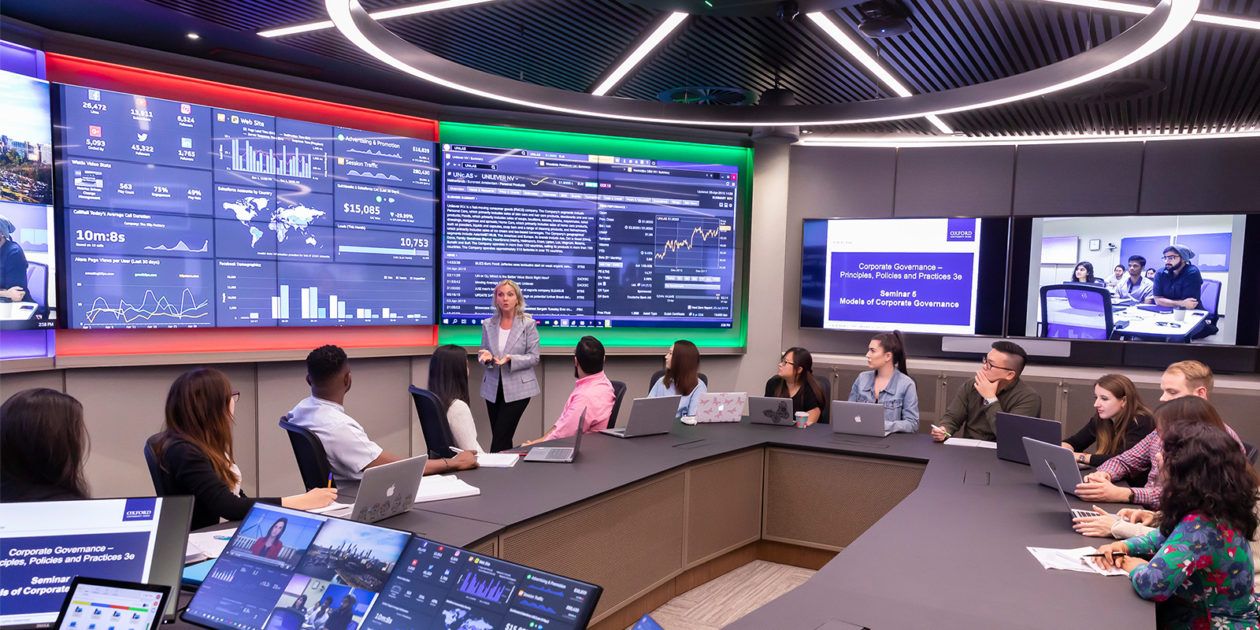Outline
Outline
This two-year qualification will help you to step into the field of accounting and broaden your career prospects. You'll gain foundational accounting skills in your first year before progressing to expert studies in your second year.
In your first year of study, you will begin to develop the financial, analytical, research and communication skills required of professional accountants*. You'll build your understanding through theoretical study and real-life cases. You will then select one of three majors in your second year.
You'll have hands-on experience using professional accounting software such as Xero, Excel, R, Tableau, SPSS, Oracle, APEX, Pythion, ArcGIS and VSOviewer. To further enhance your employability, you'll also undertake an accounting research project, analysing the performance of a real company and preparing a financial analysis.
Towards the end of your course, you will undertake an industry-connected capstone experience, including an internship, research project or study tour. You will also be able to attend employee presentations to expand your networks, with past companies including Coca-Cola Amatil, Grant Thornton and Nexia.
* This first-year content is the same as our integrated Graduate Certificate in Accounting and Graduate Diploma in Accounting.
Choose your major
In your second year, you’ll choose a major (a series of more than eight units in the same discipline) from the three below:
CPA Australia
The CPA Australia major will provide you with specific tuition, to help you meet the requirements to become a Certified Practising Accountant with CPA Australia. Please note that you must meet the relevant CPA Australia fees (including examination fees).
Digital Technologies and Data Management
The Digital Technologies and Data Management major will improve your skills in information security, data management, programming, database design, business project management, and database analytics and security, to help you gain specific roles in information technology accounting.
Advanced Accounting
In the Advanced Accounting major you will gain advanced knowledge and skills in management accounting, financial accounting and auditing issues. You can choose from a range of optional units, including on finance and investment.
Note: If you do not hold a recognised bachelor degree, you should instead study the Graduate Diploma in Accounting. If you hold a bachelor degree in accounting, you should instead apply for the one-year Master of Accounting.
What jobs can the Master of Professional Accounting course lead to?
Careers
- Certified practising accountant
- Senior accountant
- Chief financial officer
- Information technology accountant
- Accountant
- Auditor
- Business analyst
- Company secretary
- Insolvency consultant
- Internal auditor
- Tax agent
- Treasurer.
Industries
- Accounting
- Corporate
- Finance and investment
- Health
- Government
- Law
- Resources.
What you'll learn
- apply principles of financial accounting, managerial accounting, governance and auditing to grasp theoretical underpinnings of the discipline. Extend knowledge base with research and application of business research methods.
- apply critical and analytical thinking to develop innovative solutions to complex problems in relevant business fields.
- locate, extract and critically appraise information from a range of sources and effectively communicate it using structured financial or other appropriate language to a professional audience for a range of purposes.
- develop ongoing professional, self-directed and reflective education relating to developments and changes in the information requirements of a global financial system that is multi-perspective in nature, and apply international financial reporting standards.
- recognise that cultural practices and differences impact upon commercial endeavours and interpersonal relations. Work effectively in multicultural team environments.
- exhibit professional and ethical approach to analysing and reporting commercial activities demonstrating leadership, collaborative and independent qualities when required, in compliance with appropriate legislation and protocols.


